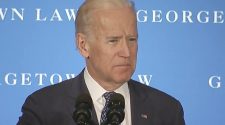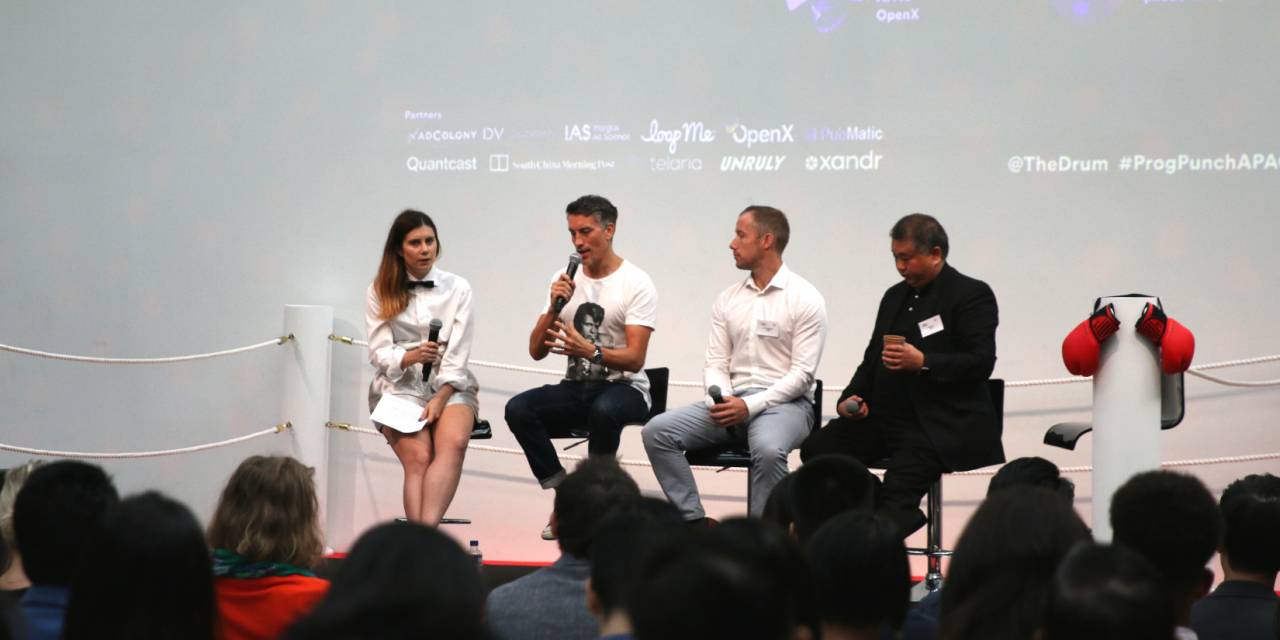What is the most significant event or technology to have rocked digital during the past 25 years? This was the question put to a panel of experts at Programmatic Punch APAC 2019.
To celebrate the 25th anniversary of the digital ad, OpenX managing director APAC Andrew Tu, Loopme general manager Pete O’Mara-Kane and Unruly chief revenue officer APMEA Phil Townend, were given the task of arguing their case.
OpenX’s Tu chooses – the cookie
“My choice is actually both the best and a worst, it depends on how you look at it. It is the cookie. At the end of the day, the cookie was the anonymous identifier that was invented to allow us to actually make some money from the internet. So to me, the cookie, love it or hate, it is actually the basis of why we’re even all here today,” said Tu.
The use of the cookie in advertising has been hotly debated, and is seen as something that could disappear from usage because of regulation on data usage, first driven from Europe but now being widely adopted by countries around the world.
Tu’s choice of the cookie was accepted by the panellists but the topic came under further scrutiny when the panel was asked what will be most significant for digital over the next 25 years. The panel agreed that measurement and attribution was a challenge, amplified by the challenges that cookie-based technology will face.
In his summary of the day, Tu argued that tracking isn’t something that will go away but the industry needed to adapt. “Tracking and delivering targeted messaging to us as humans are something we’re not going to be able to walk away from. So regardless of GDPR or CTBA, et cetera, it’s going to happen and there’s nothing we can do about it. It’s up to us to figure out what makes sense and what should be tracked and go into what device makes sense to have advertising message with targeting,” argued Tu.
Loopme’s O’Mara-Kane chooses – Mobile
“It’s easy, it’s in everybody’s pocket, it’s mobile. It’s the thing that’s revolutionized, not just our industry, the world, everything we talk about now, it’s mobile-first. The biggest players are mobile businesses. The biggest companies live on apps. I think our industry has been completely turned upside down by mobile, but also so our lives.
“Think about when you want to run an ad, you’re always thinking mobile-first. Google and Facebook are thinking mobile-first, so everyone else has to. When you want to book a car or where to have dinner, anything you want to do, you usually reach for your pocket.
“It’s changed our lives for the better. Sometimes a little bit for the worse, but I think it’s had the biggest impact and impacted the whole world in terms of how we all operate,” said O’Mara-Kane.
The panel agreed on mobile’s impact on people’s lives but challenged O’Mara-Kane on whether it’s matured enough as an advertising technology yet.
Harking back to Tu’s argument on cookies, O’Mara-Kane challenged that the cookie is a Western problem, that’s less impactful in mobile-first developing markets. He also believed that a more protected consumer is a good thing for the industry.
“If you think of consumer time, especially when you think of this region and the fact that we’ve got so many countries that were not internet-heavy, but we’re mobile-first, mobile opened up the world to the internet. Certain parts of Asia, most of Africa, they never had a desktop computer. So many of them never actually never experienced a cookie. So arguably you could say that the cookie is more of a first-world Western problem that we’ve created for ourselves.
“On top of that, the great thing about mobile web is you can’t be followed around the internet on a mobile device quite as easily in transition. What you do have with the challenges that lay ahead for the cookie is the fact that you’ve instead got a device ID. So you don’t have to have a universal ID, you can use devices, you can link that to the home. So all the worries we have about iOS in Chrome and removing cookies, which I think a lot of people agree is a good thing from a consumer perspective, that can be answered by mobile as well,” he added.
Unruly’s Townend chooses – short-termism
“The thing that’s had the biggest impact is because you can measure stuff on digital, I think the biggest challenge that we have right now, and it has been created by digital, is the rise of short-termism. If you think about the concentration of the digital dollar into the search and social platforms, they are both bottom of the funnel. On social, we get two seconds of someone’s attention on video.
“Someone the other day likened doing video on social to putting a bus shelter ad on a motorway – blink and you miss it. Search is the last click. Because these two platforms are dominant, we tend to reside from an advertising point of view at the bottom of the funnel and as soon as we switch off search, as soon as we switch off social, our sales drop. Why? Because you’ve not built a brand and we’re not told stories and we’ve not done the things that we used to do and we’re still human beings. We still are told stories by our parents at night because they are things that we like to do,” argued Townend.
The topic of short-termism, while a big factor of the past 25 years, was widely agreed on as a challenge for the industry over the next 25 years. One of the major burden, that is arguably self-inflicted, is the metrics by which digital media is often measured are about short-term goals.
Loopme’s O’Mara Kane added to this point, “What would I like to be dead from the last 25 years? The click-through-rate (CTR). It’s great if someone views your video, what do you actually want? Is it is the lower funnel stuff, so you want people to land on your site, or do you want them to go and buy your products? It’s about brand building. It’s going back to understand and every time I run a campaign, did this shift the needle in how consumers feel about my brand? Are they more aware of a new product? Did they love the brand more? Would they come back to us over and over?
“That’s something that I personally believe is what’s going to be a big shift for digital. We’ve had our infancy where we took the easy dollars and we did all of their lower funnel and they’re the low hanging fruit. Now we’ve got to do the big job of building brands. We’ve got to take on TV and outdoor and the traditional media in a more meaningful way. And the way we can do that is by challenging ourselves and saying to myself, a click, a CTR or VCR (verified cost per reach) is not enough. I need to know the impact that’s having. Am I driving an outcome? The outcomes are the next 25 years.”
OpenX, Loopme and Unruly were partners of The Drum Programmatic Punch APAC 2019. Register your interest for 2020 here.


















